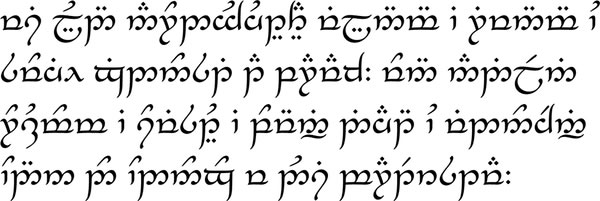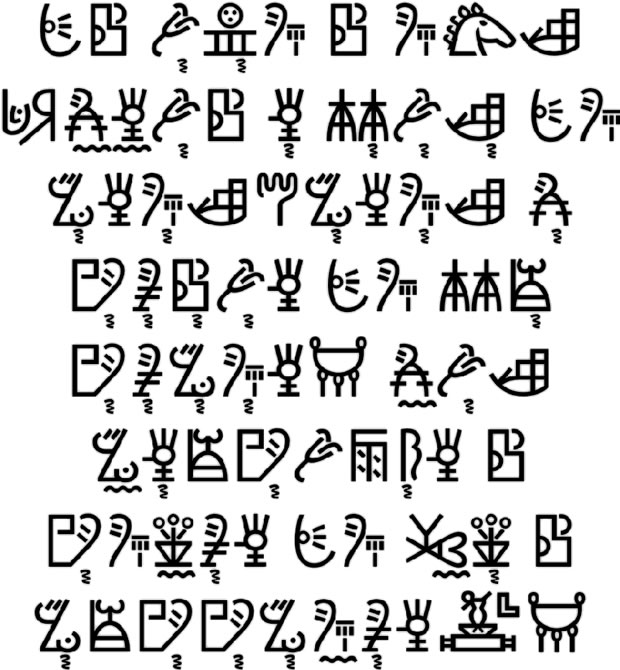Podcast: Play in new window | Download

Here’s the latest news from the world of Omniglot.
New language pages:
- Kabwa (Ekikabwa), a Northeast Bantu language spoken in the Mara Region in northern Tanzania.
- Bagirmi (tàrà ɓármà), a Central Sudanic language spoken mainly in southwestern Chad, and also in Nigeria.
- Naba (Tar Melbene), a Central Sudanic language spoken mainly in Batha-Est Prefecture in central Chad.
New numbers pages:
- Zinza (Ecizinza), a Bantu language spoken in the Mwanza Region in northern Tanzania.
- Kabwa (Ekikabwa), a Northeast Bantu language spoken in the Mara Region in northern Tanzania.
New adapated script: Tengwar for Ukrainian, a way to write Ukrainian with Tolkein’s Tengwar script devised by Murray Callahan.

On the Omniglot blog there’s a new post entitled Hydraulic Plumbers, about how the word for plumber in Italian (idraulico) differs from words from plumber in other Romance languages, and there’s the usual Language Quiz. See if you can guess what language this is:
Here’s a clue: this language is spoken in the Indian Union Territory of the Andaman and Nicobar Islands.
The mystery language in last week’s language quiz was: East Pomeranian (Ostpommersch), an East Low German language spoken mainly in Brazil, and also in the USA.
There’s no Adventure in Etymology this week as I was busy sorting things out at my mum’s house all weekend. That’s also why the sound quality of the recording is not up to the usual standards.
On the Celtiadur blog, there’s a new post entitled Ropes & Strings about words for rope, cord, to string and related things in Celtic languages.
For more Omniglot News, see:
https://www.omniglot.com/news/
https://www.facebook.com/groups/omniglot/
https://www.facebook.com/Omniglot-100430558332117
You can also listen to this podcast on: Apple Podcasts, Amazon Music, Stitcher, TuneIn, Podchaser, PlayerFM or podtail.
If you would like to support this podcast, you can make a donation via PayPal or Patreon, or contribute to Omniglot in other ways.
Radio Omniglot podcasts are brought to you in association with Blubrry Podcast Hosting, a great place to host your podcasts. Get your first month free with the promo code omniglot.















